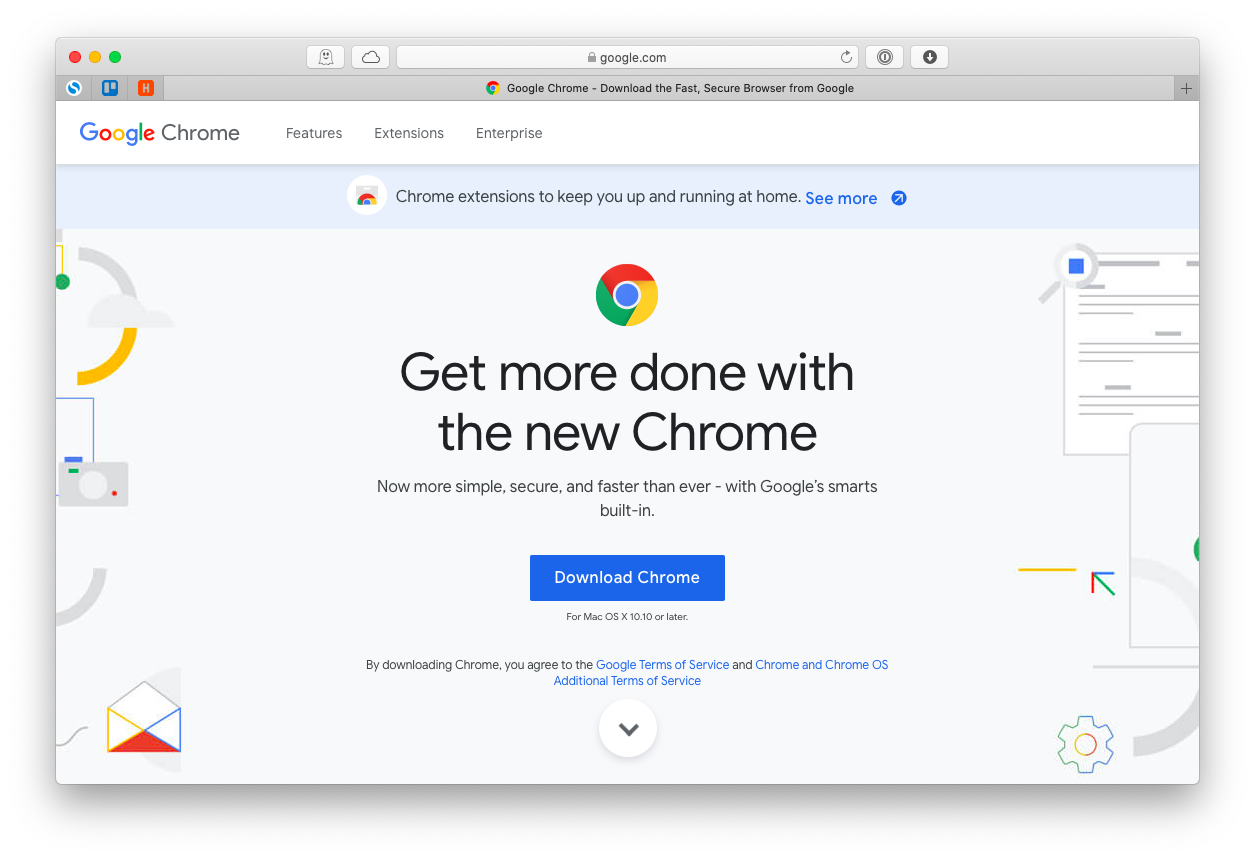

- #Command line for mac to start chrome how to
- #Command line for mac to start chrome install
- #Command line for mac to start chrome manual
- #Command line for mac to start chrome software
On macOS 10.15 you will find the Firefox browser’s extensions using this path: ~/Library/Applications Support/Application Support/Firefox/Profiles/.default/extensions ~/Library/Applications Support//Extensions

~/Library/Applications Support/Google/Chrome/External Extensions If you use Chrome, Opera or Firefox browsers on macOS 10.13, then you can find the appropriate extensions in the following directories: To remove Safari extensions on macOS Catalina, please see the previous step in this guide. This method of uninstalling Safari extensions is applicable to macOS 10.14 and earlier.

Remove Safari browser extensions manually If you use a Mac computer, then the second method comes in handy.
#Command line for mac to start chrome manual
Thankfully there are two more ways to remove browser extensions: manual removal and automatic removal. The extension simply might not appear in the appropriate list, or still continues to function and refuses to be deleted. Sometimes, because of incompatibility or program errors, the default removal method for browser extensions may not work. Click the small X icon to remove an extension.Īlternative ways to remove browser extensions.Click Disable to hide unneeded extensions.A window with all your Opera extensions will appear.Use the View → Show Extensions menu command.Do the following to remove unwanted Opera extensions: Opera is another web browser that is popular in some countries. Move the selected extension to the Trash Bin or use the CMD+Delete shortcut.Launch Safari, go to the preferences ( CMD+,).Since the macOS 10.15 update, Safari extensions are located in the Applications folder, and this means you have to take extra steps to remove extensions.
#Command line for mac to start chrome how to
How to remove Safari extensions on macOS 10.15
#Command line for mac to start chrome install
However, if you install multiple extensions, Safari may slow down. The default Apple browser, Safari, doesn’t provide as many extensions as its competitors, Chrome and Firefox. Click the Remove button to delete unneeded extensions.Īfter this, restart Firefox and check that the extension is no longer in your browser.Use the Addons command from the main browser menu.Use the toggle button to temporarily disable unneeded extensions.Click the Remove button to delete the unneeded extension, then confirm.Use the menu command Window → Extensions.How to remove hidden Chrome browser extensions Follow the next steps to remove such browser extensions. Some browser extensions do not have an icon in the toolbar. That’s all! The unneeded Chrome browser extension is now removed. Confirm the deletion in the popup window appeared.Right-click on the extension and select the Remove from Chrome menu command.Hover cursor over the unneeded extension on the extension bar.How to remove visible Chrome browser extensions Let’s take a look at how to manage browser extensions using the Honey browser extension as an example.

You can remove Chrome extensions by using the popup menu command at the extensions bar. Unfortunately, a large number of extensions might slow down web browsers, so we have to delete them from time to time. Thanks to these add-ons, we can enjoy additional functionality, such as viewing office documents in a browser window, checking email messages in automatic mode, showing the weather forecast, and much more.
#Command line for mac to start chrome software
How to remove browser extensions – alternative methodsĪ browser extension is a small software plugin, which usually expands the functionality or customizes the browsing experience. Fortunately, browser extensions can be removed as easily as they were installed.Ħ. Some of them may even be used as malicious software that changes your start page or the search engine or allows annoying advertising pop-ups. You might notice that your browser performance may slow down because of a large number of extensions. Browser extensions make our experiences with Chrome, Safari, Firefox, Opera or other browsers more personalized and convenient.


 0 kommentar(er)
0 kommentar(er)
